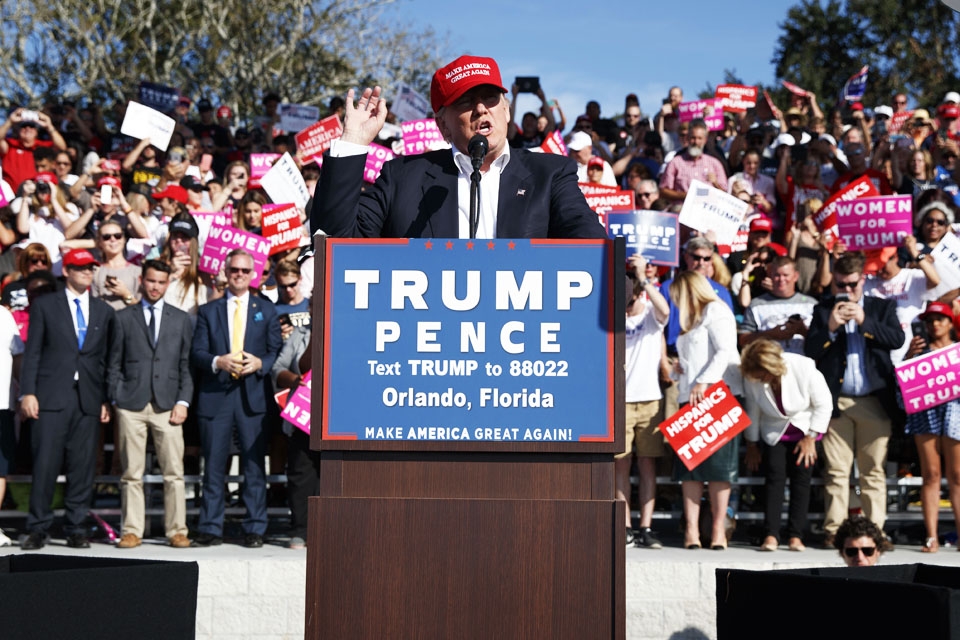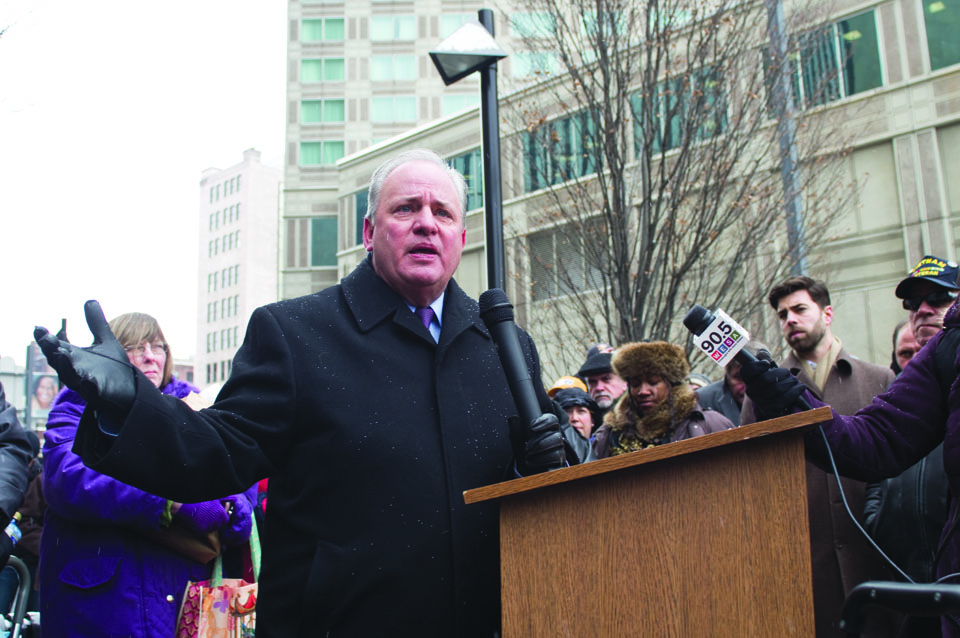

Donald Trump speaks at a campaign rally in Orlando, Florida. The candidate’s threat of expanding libel laws may have a negative impact on satirists in the U.S.
By Sean Ray | A&E Editor
Election years may be a dour time for most people, filled with arguments on Facebook and non-stop campaign ads, but for the entertainment industry, presidential runs are veritable goldmines.
Satirists like Stephen Colbert and Samantha Bee take joy in skewering candidates whenever they get the chance. Video games like “Mr. President” and “The Political Machine 2016” let players everywhere take part in the political fun. And there is little doubt shows like “House of Cards” are drawing inspiration for their next seasons from the news cycle of Clinton vs. Trump.
Unfortunately, though, what many might not realize is that the entertainment industry will be under threat. And in a rare example of bi-partisanship, both candidates represent dangers to different parts of the industry.
In a speech given in Febuary, Donald Trump promised to “open up” libel laws in order to make journalists who write negative articles about him easier to sue. While Trump may have only specified journalists in the speech, his comments could have wide-reaching implications.
Libel laws are important to journalists, but they don’t only protect journalists. Comedians rely on them to keep themselves protected from people angry about being made fun of in their jokes and stand-ups.
If journalists are easier to sue for saying bad things, what’s to stop Trump from suing “Saturday Night Live” the next time Alec Baldwin mocks him? Will we have to look forward to the day President Trump enters an ongoing court battle with Trevor Noah over his latest joke?
This isn’t the first time a politician has turned out to be thin-skinned against criticism. As a matter of fact, the second President of the United States, John Adams, passed similar laws known as the Alien and Sedition Acts, which banned speech that was critical of the government. However, the sedition part of those laws have not been a part of U.S. law for more than 100 years.
On the Clinton side of things, the former New York Senator as had a very negative history with the video game industry.
According to an article by the Washington Post, she once gave a speech calling for violent video games to be regulated just has harshly as tobacco or alcohol. The speech was in support of the Family Entertainment Protection Act, a law which would have fined the selling of violent video games to minor. Clinton introduced the law, though it never passed.
While the jury is still out on the psychological effects violent video games can have on children, this increased scrutiny is unprecedented for an entertainment medium. Is it illegal for a kid to watch a violent TV show? Minors may not be allowed into rated R movies at most theaters, but that is not due to a law. That’s just a commonly accepted practice of theaters and is entirely voluntary. Movies don’t even need to send in their films to be rated in the first place.
Thankfully, laws against video games are going to be a little harder to pass today than in the past. In 2011, the U.S. Supreme Court struck down a Californian law that was very similar to Clinton’s FEPA. Now judicial precedent is in the favor of video game companies and against future laws like that.
Obviously the effects of politicians on the entertainment industry are not the most important things to look at this election. There are fiscal policies, immigration stances and experience to consider. But entertainment is ingrained in our everyday lives and affects many of us more often than a decision on how much the wealthy will be taxed or whether our southern border will have a wall.
Take into consideration how your favorite form of relaxation might be affected this coming election day.



